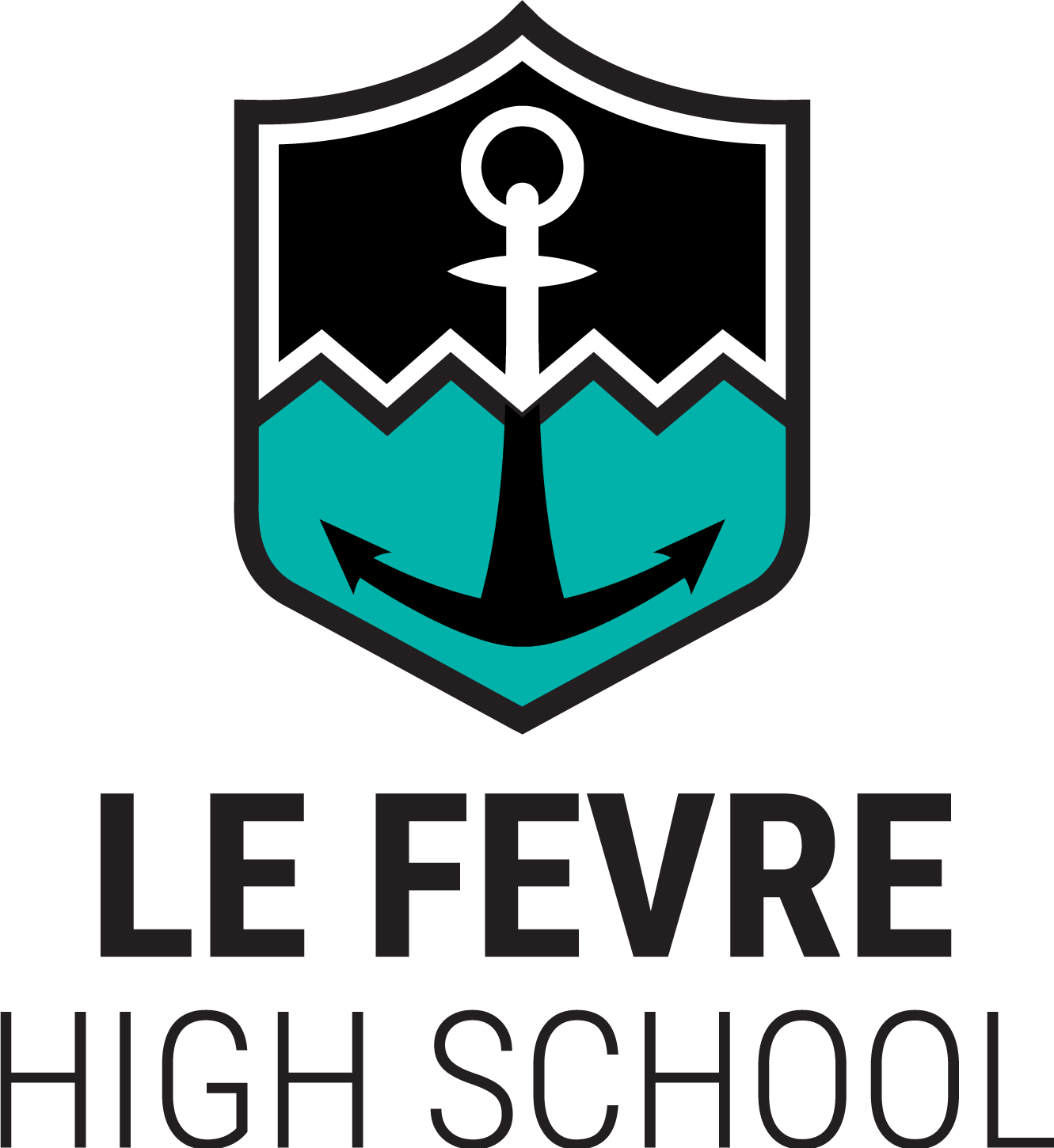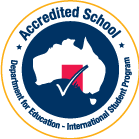Learn more about the subjects available below.
Dance
By the end of year 9, students develop knowledge, understanding and skills of dance as an art form through choreography and performance. They make and respond to dance works, working in small groups to manipulate the elements of dance to communicate intent. They discover new movement possibilities and develop proficiency as they refine technical and expressive skills to convey different dance techniques, such as Hip Hop, Jazz and Contemporary.
Technique: Developing skills in jazz, contemporary/traditional and hip hop dance styles.
Composition: Students learn skills to create their own dance choreography pieces by exploring movement through a variety of tasks based on themes, ideas and choreographic devices.
Performance: Students have the opportunity to perform at various school and community events, as well as ongoing presentations in class.
Appreciation: students develop evaluative skills as they reflect on their own and other choreographers’’ use of the elements of dance to communicate intent. They investigate dance in Australia and make connections to international contexts.
ASSESSMENT
Participation in workshops, technique execution, composition tasks, performance or presentation, process journal and written responses using IBMYP criteria aligned with the Australian curriculum
Drama - Performing Arts
By the end of Year 9 students will be familiar with various styles of theatre and theatre conventions. They will have undertaken practical workshop activities to develop their understanding of theatre styles. Students will collaborate with one another to apply this knowledge to devise, interpret and create performances to share in class. Students will attend live theatre and analyse the various stage craft and performance elements both in verbal discussion and in written reviews. This greater understanding will be applied to their performances of scripted drama in the development of various roles and characters and in the manipulation of the performance space.
Students will collaborate with others to plan, direct, produce, rehearse and refine performances. They will select and use the elements of drama, narrative and structure in directing, blocking and acting in order to engage audiences. They will refine performance and expressive skills in voice and movement to convey dramatic action.
ASSESSMENT
Workshops, improvisation, performance and small group production, written reviews, reflective journals and written reports using IBMYP criteria aligned with the Australian curriculum.
Media Arts & Visual Design
This subject is for students who enjoy being creative and would like to explore the exciting and varied world of Design in the context of Graphics and Digital Media.
- Students use the Design Process to produce a range of products like logos, posters, and packaging
- Students explore creative thinking processes and the elements and principles of design
- Students develop skills with Photoshop and other digital technologies
ASSESSMENT
Finished Design works and process journal, folio of skill development on Photoshop, and written reviews using IBMYP criteria aligned with the Australian curriculum.
Music - Performing Arts
Music in Year 9 provides students with the opportunity to extend their musical knowledge through workshops, performances, composition tasks and theoretical classes. By the end of Year 9 music, students will be able to read and write music using basic notation and will begin to use this knowledge to form their own original compositions. Students will be taught analytical skills and begin to interpret the different elements of music including aural analysis, pitch, notation, rhythm defining characteristics from different musical styles and cultures.
Students will be asked to focus on their instrument of their choice for practical lessons and performances, both in class and publicly at school assemblies. To assist with this, it is highly advisable that students have their own instrument so they can practice at home. Instrumental lessons are provided to all music students for a variety of instruments free of charge. These lessons will take place within school hours and are required to support students with the practical component of the course. If a student is already receiving lessons privately, school based instrumental lessons are not necessary.
This course caters for students of all ability levels and experience and provides an excellent foundation for further music study in later school years.
ASSESSMENT
Performances, tests and written assignments using IBMYP criteria aligned with the Australian curriculum.
Visual Art
In year 9, students evaluate how visual art form communicates artistic intentions in artworks that the students make and view. They evaluate artworks and displays from different cultures, times and places. Students analyse connections between visual conventions, practices and viewpoints that represent their own and others ideas. They identify influences of other artists’ on their own artworks.
Students manipulate materials, techniques and processes to develop and refine these to represent ideas and subject matter in their artworks.
ASSESSMENT
Finished Art pieces, written and oral responses that demonstrate a student’s specialized vocabulary, IBMYP Process journal.
Design & Technology / Metal
This course will introduce students to aspects of engineering, construction and maritime shipbuilding industry. Students will learn welding, fabrication and machining skills and processes. Students use the design and realisation process to engineer solutions for the development of products or systems.
Students will be given the opportunity to:
- Learn to create a design brief that provides the basis for the development of potential solutions to design problems.
- Review design features, processes, materials and production techniques to assist with the realisation of the solution. A solution in this subject is an outcome of the design and realisation process in relation to the chosen context.
- Analyse influences on a product or system including ethical, legal, economic, and/or sustainability issues.
- Consider the practical implication of these issues on society or design solutions.
- Use new and evolving technologies.
- Apply appropriate skills, processes, procedures and techniques whilst implementing safe work practices in the creation of the solution. Learn to use the industry standard Autodesk Inventor software to design, create, model and assemble 3-dimensional objects.
Assessment:
Assessment in each area is based on the ACARA Achievement Standards
- Knowledge and Understanding
- Processes and Production Skills
Assessment Type include:
Assessment tasks, practical work, and analysis of work completed.
Design & Technology / Timber
Technologies aims to develop creative and innovative problem solving. Students will analyse problems, design and create solutions and evaluate their outcomes. Students will engage in contemporary and emerging technologies using design thinking strategies.
Students will be given the opportunity to:
- Produce designed solutions using a variety of timber options both man made boards and natural timbers within a workshop environment
- Work independently and collaboratively to develop innovative solutions using the Design Cycle.
- Analyse influences on a product or system including ethical, legal, economic, and/or sustainability issues.
- Engage in the product development process using design thinking
- Design products using industry standard 3D modelling software
Assessment:
Assessment in each area is based on the ACARA Achievement Standards
- Knowledge and Understanding
- Processes and Production Skills
Assessment Type include:
Assessment tasks, practical work, and analysis of work completed.
Design: Digital Technology
Digital Technologies provides students with practical opportunities to use design thinking and to be innovative developers of digital solutions and knowledge. The subject helps students to become innovative creators of digital solutions, effective users of digital systems and critical consumers of information conveyed by digital systems.
This subject is an integrated approach to teaching technology. The Digital Technologies Curriculum is introduced to students via the following:
· Programming Structures – Sequence, Selection & Iteration
· Excel Spreadsheets – Performing Simple Coded Functions
· Text-based Game Design & Construction using a General-purpose Programming Language – Python
· Pseudo Code – Plain English planning using both Written & Graphical means
· Introduction to Artificial Intelligence (AI) & Robotics – LEGO Mindstorms
ASSESSMENT
Assessment in each area is based on the ACARA Achievement Standards
- Knowledge and Understanding
- Processes and Production Skills
Assessment Type include:
Assessment tasks, practical work, and analysis of work completed.
Design: Enterprise Education
Students to use entrepreneurial capabilities and the design cycle to create their own small business concept and product.
Student will design, create, brand and market a product. Products could have a social issues focus or recycle/new focus. Products created could come under the headings of jewellery, home solutions/decor, fashion, textiles, wood, metal or mixed materials.
2 Full Design cycles in the semester. 1 for product design – 1 for branding/marketing.
Students will showcase their products via a showcase/market afternoon to the wider school community.
Assessment:
Assessment in each area is based on the ACARA Achievement Standards
- Knowledge and Understanding
- Processes and Production Skills
Assessment Type include:
Assessment tasks, practical work, and analysis of work completed.
Design: Food & Textiles
Home Economics for Year 9 is a comprehensive and exciting course that aims to equip students with essential skills for growing adolescents. It provides a perfect opportunity for students to develop a strong foundation skill and will benefit them throughout their lives.
Term 1: Students will use design thinking and apply technical skills with the sewing machines. They will develop knowledge and understanding about textile products, clothing and participate in skill development workshops. Students will consider ethical and sustainability factors that impact on textile production decisions. They will gain experience in safely and competently operating sewing equipment to produce quality products from upcycled and new fabrics. Students will experiment with embellishment techniques to create new and interesting materials in readiness for their own design project.
Term 2: The goal of the unit is to empower year 9 students to make healthy food decisions, develop skills and understand the concepts of applying nutrition to healthy diets with meals, snacks, and food management. The use of thinking tools will be used to support their development. Students will produce healthy meals with the intention of understanding how they can be better alternatives than takeaway options.
ASSESSMENT
Assessment in each area is based on the ACARA Achievement Standards
- Knowledge and Understanding
- Processes and Production Skills
Assessment Type include:
Assessment tasks, practical work, and analysis of work completed.
English
In Year 9 English, students will engage in the three strands of the Australian English Curriculum; Language, Literature and Literacy.
Students will read, view and analyse a range of texts eg Poetry, Prose, Drama, Visual, Short Pieces, Multimedia and Electronic texts.
Students will listen to, evaluate and produce a range of spoken texts, eg Anecdotes, Debates, Multimedia Presentations, Poetry Performances, Formal Speeches and Social Issue Reports.
Students will also compose a range of texts – written and multimedia for particular audiences, purposes and contexts.
The nature of the texts students will study and produce will focus on increasingly complex ideas and themes as they prepare for year 10. There will always be an emphasis on exploring issues relevant to adolescents and an approach that allows students to engage with aspects of our society including its diverse cultural aspects. At each year level, students will develop skills in understanding the language of different texts and acquire strategies to help them compose their own texts.
Study will also include a reading program aimed at increasing student literacy and reading proficiency. This will be supported by programs such as Tactical Teaching Reading and SmartLabs which will focus on correcting skill gaps and offering opportunities to practice literacy skills.
ASSESSMENT
Students will be assessed according to the Achievement Standard in the Australian Curriculum for Year 9 English under both:
- Receptive modes (listening, reading and viewing)
- Productive modes (speaking, writing and creating)
HUMANITIES AND SOCIAL SCIENCES
Humanities and Social Sciences (HASS) is a subject that combines History, Geography, Civics and Citizenship and Economics and Business. Each of these subjects is taught throughout the year within their own distinct units.
In Year 9 Students will engage in the following topics:
History: Students will study the making of the modern world from 1750 to 1918. Students will engage in units focused on The Industrial Revolution (1750 – 1914), Making a Nation (in which students investigate the History of Australia’s establishment and early history) and World War I (1914-1918). First Nations Peoples perspectives will be a particular focus for Year 9 History.
Geography: Students will study two core units of Biomes and Food Security and Geographies of Interconnections. They will investigate the Biomes of the world, their alteration and significance as a source of food and fibre. Then in Geographies of Interconnections students will focus on investigating how people, through their choices and actions, are connected to places throughout the world in a wide variety of ways. Heavy emphasis in these units is placed on geographical skills.
Civics and Citizenship: Students in the unit will investigate the important role that the Australian Constitution holds in supporting democracy and empowering the federal system of government. They will develop an understanding of how law-making and changing is conducted, and understand the role of the Australian people in constitutional change.
Economics and Business: Students will examine three case studies of South Australian Viticulturalists and Winemakers who trade globally to investigate what it means for South Australia to be part of the global economy, particularly through trade with the countries of Asia. They explore the influence on the allocation of resources, and how businesses create and maintain competitive advantage. They examine the implications of interdependence of participants in the global economy for decision-making, and the human story behind business decisions.
ASSESSMENT
Students will be assessed according to the distinct Achievement Standard for each of the subjects represented in the Australian HAAS Curriculum:
- History
- Geography
- Civics and Citizenship
- Economics and Business.
Language Acquisition
“You live a new life for every new language you speak. If you know only one language, you live only once.” ‒ Czech Proverb
Being able to communicate in another language is available to everyone at Le Fevre High School.
Students will leave this course with the ability to communicate in Indonesian on a wide variety of topics which are both relevant and useful to them. Their confidence and ability with speaking, listening, reading, and writing in Indonesian will provide them with intercultural competence and problem-solving skills for the workforce and life. Their understanding of English will be enhanced through the learning experiences they are provided with.
They will journey further through Indonesia’s culture via the arts, food and many other learning experiences made available to them.
ASSESSMENT
Students will be assessed using the IBMYP Criteria in the following areas:
- Comprehending spoken and visual text
- Comprehending written and visual text
- Communicating in response to spoken, written and visual text
- Using language in spoken and written form
Mathematics
In Year 9 Mathematics, students solve problems involving simple interest. They interpret ratio and scale factors in similar figures. Students explain similarity of triangles. They recognise the connections between similarity and the trigonometric ratios. Students compare techniques for collecting data from primary and secondary sources. They make sense of the position of the mean and median in skewed, symmetric and bi-modal displays to describe and interpret data.
Students apply the index laws to numbers and express numbers in scientific notation. They expand binomial expressions. They find the distance between two points on the Cartesian plane and the gradient and midpoint of a line segment. They sketch linear and non-linear relations. Students calculate areas of shapes and the volume and surface area of right prisms and cylinders. They use Pythagoras’ Theorem and trigonometry to find unknown sides of right-angled triangles. Students calculate relative frequencies to estimate probabilities, list outcomes for two-step experiments and assign probabilities for those outcomes. They construct histograms and back-to-back stem-and-leaf plots.
Content
The following topics provide the framework for learning in Year 9 Mathematics:
- Proportion, Notation and Financial Mathematics
- Patterns and Algebra
- Data Representation and Interpretation
- Pythagoras and Trigonometry
- Linear and Non-Linear Relationships
- Units of Measurement
- Geometric Reasoning
- Chance
Assessment
Students are assessed against the Australian Curriculum Mathematics achievement standards. Evidence of student achievement will be gathered through tests, investigations and reports.
Students are tested on their knowledge of index laws and indices, the Pythagorean theorem and trigonometry, linear and non-linear relationships and their geometric reasoning. They investigate and compare the height of students in their class with national statistics, how surface area and volume impact on the size of cargo ships and validate statistical claims in the media, often writing reports on their findings.
health and physical education
Health and Physical Education enables students to develop skills, understanding and willingness to positively influence the health and wellbeing of themselves and their communities. Students apply movement skills, concepts and strategies across a range of movement contexts, enabling them to participate confidently and competently in physical activities. When learning in movement contexts, students gain skills, understanding and dispositions that support lifelong physical activity participation and enhanced movement performance. They also develop personal and social skills through interacting with others in classroom and movement contexts. Health and Physical Education addresses factors that influence the health, safety, relationships, wellbeing and physical activity patterns of individuals, groups and communities. Students develop the understanding to challenge discrimination, assumptions and stereotypes. They gain skills to take positive action regarding diversity, inclusion, consent and respect in different social contexts.
Topics in this course include:
- Alcohol and Other Drugs
- Food and Nutrition
- Relationships and Sexuality (SHINE Curriculum)
- Games and Sports (various)
- Challenge and Adventure: Community Based Activities
- Health Benefits of Physical Activity
Physical Education
The Physical Education Pathways course aims to enhance students' skills, knowledge, and expertise by immersing them in various movement experiences, emphasizing the principles of sport science. This course offers students the opportunity to engage in data collection and analysis, performance enhancement techniques, and sport education. By exploring their physical capabilities and examining the factors that impact and enhance participation and performance, students can expand their repertoire of sports and activities beyond what they have previously encountered in the mandatory course. Additionally, this course will deepen students' understanding of movement skills, establishing a solid foundation for success in Year 11 and Year 12 Physical Education.
Topics in this course include:
- Games and Sports (various)
- Group Dynamics (SEPEP)
- Barriers and Enablers to Participation
- Modified and Inclusive Sports
- Data Collection and Analysis
Specialist Football - Soccer
The Specialised Football Program empowers students with a passion for soccer to enrich their understanding and proficiency across all aspects of the sport, including playing techniques, rules, strategic tactics, fitness, and training principles. Participants in the program have the chance to receive specialized skills coaching, enhance their fitness levels, and participate in statewide soccer and Futsal competitions. The course covers topics such as:
The Soccer Academy is crafted to offer a distinctive opportunity for talented football (soccer) players in Years 7-11 to refine their individual skills, knowledge, and attitude, enabling them to excel in the game. The program not only facilitates skill development but also provides opportunities for enhancing leadership skills and fostering civic responsibilities.
Students also get the chance to represent the school in their respective teams, competing in events like the Football and Futsal knockout and zone carnivals.
- Skill and Performance development (practical)
- Position specific performance training
- Performance Analysis
- Specialist sport practical
- Fitness Football specific
- Nutrition for Football
- Injury Prevention and Management
Assessment activities will conform to the standards outlined in the Health and Physical Education Achievement Standards of the Australian Curriculum Framework. During the mandatory semester, students will engage in the examination of health-related subjects as specified in the HPE curriculum.
This year-long course will incur additional cost for students, including the purchase of a specialised soccer top (new students only), transportation costs to multiple games, and fees associated with the Football Federation course. The total fee for these components is $130 for the entire year, and payment options are available through an instalment-based payment plan.
Science
In Year 9 Science, students explain chemical processes and natural radioactivity in terms of atoms and energy transfers and describe examples of important chemical reactions. They describe models of energy transfer and apply these to explain phenomena. They explain global features and events in terms of geological processes and timescales. They analyse how biological systems function and respond to external changes with reference to interdependencies, energy transfers and flows of matter. They describe social and technological factors that have influenced scientific developments and predict how future applications of science and technology may affect people’s lives.
Content
The following topics provide the framework for learning throughout the year, but not necessarily in this order, as different Year 9 classes will cover content at different times of the year.
- Responding to Change
- Interdependence and Ecosystems
- Plate Tectonics
- Atoms
- Changes in Matter
- Energy Transfer
- Energy Waves
- Science Storytelling
Assessment
Students are assessed against the Australian Curriculum Science achievement standards. Evidence of student achievement will be gathered through tests, assignments and practical reports.
Students are tested on their knowledge of plate tectonics and energy transfers. They test how changing variables affects reaction time and the amount of energy found in a range of snack foods, writing practical reports on their findings. They investigate whether nuclear energy should be used in Australia and how a bionic device of their choosing has benefited humanity. Students investigate the ecology, diversity and sustainable practices within the Port River Barker Inlet estuary. They write an article to inform the general public on a topic of their choice.







